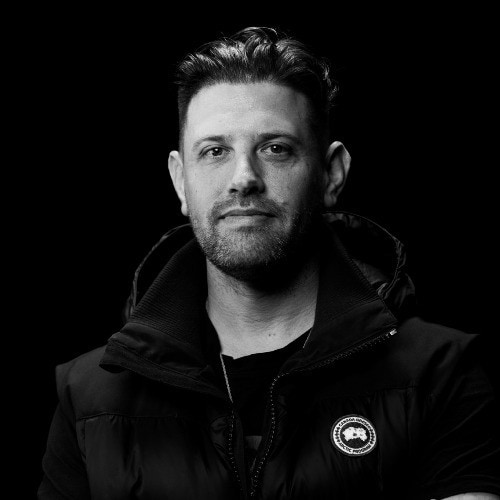PwC New Zealand | Spring 2023
Startup
Investment
New Zealand investors buck global trends
Welcome to the Spring 2023 edition of Startup Investment.
In this edition of Startup Investment we share insights on the investment data from H1 2023, and delve into two trending sectors in angel and early stage venture capital – gaming and Artificial Intelligence (AI).
In the first half of 2023 New Zealand investors bucked international trends, with the most recent data showing signs of resilience in our startup ecosystem.
Offshore, deals and dollars invested were well off the 2021 highs, and also down from last year’s investment levels. Global economic conditions and geo-political uncertainty continue to affect markets - particularly tech. The impact of economic headwinds on the ecosystem was most evident in late-stage venture capital, with global seed stage valuations and investment activity proving more robust.
In New Zealand, however, confidence in the asset class held up, as our dollar value and deal numbers remain at similar levels to the first half of 2022 with 67 deals funded compared to 66. Just over $71m went into those companies, representing a drop of 4% against the same time frame last year.
Historically, roughly two-thirds of deal activity happens in the second half of the calendar year and conditions continue to be challenging. Therefore, the full-year data will demonstrate whether the trend is supported, but so far the picture has been one of resilience.
In the first half of this year, investors showed a very clear preference to support startups they have already backed, with only 25% of the deals done being investment in new companies. 75% of the deals were to support ventures already in their portfolios.
The notable shift in support from new deals to existing companies does speak to a change in behaviour from investors and could adversely impact the pipeline of new startups if the trend continues in the longer term.
Investment generally follows companies that are able to demonstrate they are hitting milestones, show effective use of capital and have realistic valuations. We are also seeing investors in New Zealand back ventures grounded in their inherent, long term and sustainable value, rather than just their speed of customer or revenue growth. Growth matters of course, but it is not the only proxy for value.
Deep Tech ventures accounted for 49% of deals in the first half of 2023, with SaaS coming in at just 16%. This inclination toward high-impact, long-term value reflects a broader trend that emerged in 2022. Within the sub-categories in Deep Tech, Health Tech leads the pack, gaining 46% of all funding, followed by Clean Tech at 22% and Agri Tech at 17%.
As we look ahead, it is clear that challenges will persist and funding will be hard to come by. New Zealand's startup ecosystem, with its focus on value creation, Deep Tech innovation, and collaborative spirit, is well-positioned to navigate these challenges.
There is more to do to ensure a strong pipeline of disruptive companies continue to make a major impact on New Zealand’s economy, as well as global social and environmental issues. Startup founders have never shirked tough challenges, and neither should investors.

Startup investment trends - what the data shows
The latest Young Company Finance deal data shows that in the first half of 2023, a total of 67 deals were funded by Early Stage Investors1 with a total of $71.6m capital funding provided. This represents a similar deal volume (1 extra deal), with a 4% decrease in investment amount, as the same period in 2022. The number of new deals has decreased to 17, while the number of follow on deals has increased to a record 50. New deals made up 25% of the funding in investment terms, with 75% of deals supporting ventures already in investors’ portfolios.
Deep Tech continues to be a favourite sector for investors, accounting for 49% of total capital funding during H1 2023. Software was the second most significant sector with 22% of investment - a significant drop from 40% in H1 2022. Among the Deep Tech sub-sectors, Health Tech attracted the lion’s share of the funding (46%), followed by Clean Tech (22%).
1 Early Stage Investors refers to angel investor groups or funds, incubators, university funds and early stage co-investment partners of NZGCP. It does not include venture capital investment.
2 Deep Tech includes pharmaceuticals & biotechnology, Agri Tech, Clean Tech, Climate Tech, Space Tech and Health Tech.







For the love of money: NZ investors need to up their game
New Zealand is a hard place to raise capital. It is the perennial complaint of innovators and entrepreneurs since anyone can remember.
Startups find it even harder, and now is arguably the worst time to raise funding, given international headwinds. Global investors are choosing alternative sector opportunities to startups generally, and the AI and gaming sector in particular. Traditionally many New Zealand companies have sought and sourced capital from markets in the US and Asia, but today this is where the diminished appetite for risk is most pronounced.
Venture capitalist Chris Jagger of Alt Ventures says, “We were telling our portfolio companies 12-18 months ago that they needed to be managing their bottom line aggressively. Gone are the days of burning through cash and raising again quickly in an ‘up market’. We are in a new normal of capital constraint and I don’t see this changing in a hurry.”

World class talent
But tight capital markets present opportunities that New Zealand is uniquely placed to take advantage of.
Founder and CEO of Futureverse, Aaron McDonald, says talent acquisition and retention is a global issue, but New Zealand is an attractive place to work for the global workforce, a point supported by Jagger.
“We are recognised as having world class talent,” says Jagger, who returned to New Zealand following an international career at Lehman Bros, GI Partners and Lloyds, to take up roles at the Future Fund and NZ Superannuation Fund. He set up Alt Ventures five years ago. “We have big global hit-makers like Grinding Gear Games with Path of Exile, and there are also studios in Christchurch that contract work for big offshore IP holders.”
“I prefer to invest in places where there are concentrations of talent and people,” explains Jagger. “Peter Jackson and Richard Taylor, for example, have created a world centre of screen and VFX excellence in New Zealand and the gaming industry leverages the success of Weta and what it does.” This is what he invests in – experienced teams with a differentiated vision and, importantly, an ability to execute.
Supporting our startups
McDonald notes that New Zealand startups often get to cash flow faster than their American equivalents, possibly because of the difficulty of accessing funding. While Jagger adds that “it’s a lot cheaper to build games here than in America.”
“New Zealand is a great place to build a company, with a clear regulatory framework, clear valuations for early-stage startups and good support from Government agencies,” McDonald says. He believes the local industry is not as prone to group-think capture as other jurisdictions, which allows a boldness in approach and execution of business strategy.
There is also Government support for gaming, with CODE expanding, plus the recently launched Game Development Sector Rebate.
But the need for investors to upskill and update their knowledge to take advantage of the myriad of opportunities in the AI and gaming space, is a consistent theme.
Understanding the opportunities
For Jagger, investors need to ask themselves why they are in this sector, and what is their appetite for risk.
McDonald agrees. “Investors don’t know this market,” he says. “New Zealand investors don’t know anything but SaaS and high tech manufacturing, and the local capital network isn’t comfortable because it doesn’t understand the dynamics of the industry.”
Turning to our other sector focus in this edition, Tim Warren, of Ambit AI, believes that private investors back AI companies “because it seems cool and the money is secondary,” whereas venture capital is more market-return driven.
“People think AI is going to be romantic and it isn’t,” he says, pointing out the dangers of group-think in the investor community and the trend for investors to follow sectors in droves.
“I’m an investor. I don’t ask for that money back. I give them money again. You build them up for success. Investors need to put on their big boy pants and take a real risk. But don’t invest if you aren’t comfortable with the risk profile.”
“Investors don’t know this market. New Zealand investors don’t know anything but SaaS and high tech manufacturing, and the local capital network isn’t comfortable because it doesn’t understand the dynamics of the industry.”
Aaron McDonald, Founder and CEO, Futureverse
Chris Jagger
Investor and Founder,
Alt Ventures

Aaron McDonald
Founder and CEO,
Futureverse

Tim Warren
Founder and outgoing CEO,
Ambit AI
Creating a Legend: a gaming start-up’s phenomenal success
Legend Story Studios, the fastest growing company in New Zealand with three-year revenue growth of 6416% to 2022, is set to launch in the massive Japanese market later this year.
Founder and CEO, James White, says the soft launch of Flesh & Blood will provide “a gentle on-ramp” to an official launch in May next year of the card trading game that has propelled the company to the top of the niche gaming entertainment category.
Japan will add 400 more gaming stores to the 4,000 that already stock Flesh & Blood, and run global marquee events attracting up to 2,000 competitors and over US$1m in prize money each year.

Flesh and Blood has about 50% global market penetration, and is in around 8,500 stores worldwide, so there is plenty of runway for future growth.
Following this November’s marquee event in Barcelona, the current US$1m prize will increase in 2024, reflective of the growing player base, says White.
Raising capital
Shareholders will be delighted. After the initial capital raising, the company has funded growth through revenue, delivering big initiatives and five rounds of dividends, he says with justifiable pride and no small degree of relish.
The shareholder value is going to friends and family. Back in 2018/19 White wrote and presented a company prospectus “to professional investors and they just laughed at us”.
Chris Jagger, investor and founder of Alt Ventures, set up a dedicated gaming venture capital fund after Legend Story Studios sought to raise capital, and notes that it is another big success story that got away from local VC funds.
Jagger moved into gaming because of the glaring lack of funding for the sector. “Gaming is the biggest entertainment sector in the world; half the planet are gamers, and gaming is an area where New Zealand is winning. We’re the first fund to invest in gaming in Aotearoa and currently the only dedicated one.”
Alt Ventures has 12 studios in the fund and three other “crea-tech” investments that pre-dated the fund.
“We’re not picking hit games here; we focus on teams that can build winning products,” Jagger says. “Most start-ups don’t succeed, and gaming companies are no exception. But when a team like Legend Story Studios has a hit, it wins big,” he adds.
Continuing growth
“Legend Story Studios is still in the fast growth stage, albeit not the vertiginous giddy heights of the early years, which means the growth is manageable and the company is able to fund and scale its operations appropriately,” says White.
He says the company is now, strictly speaking, past the start-up stage, with 47 staff around the world, including Paris, Madrid, Portland and Osaka.
“Legend Story Studios is a small independent start-up from the end of the world. It’s a phenomenal success story, a David and Goliath story. We’ve managed to do something against all the odds.”
“Most start-ups don’t succeed, and gaming companies are no exception. But when a team like Legend Story Studios has a hit, it wins big.”
Chris Jagger, Investor and Founder, Alt Ventures
James White
Founder and CEO,
Legend Story Studios

Chris Jagger
Investor and Founder,
Alt Ventures
Tomorrow’s tech making an impact today
New and emerging technologies have the potential to make a significant impact on society and the economy. In this article, we explore two organisations - Ambit AI and Futureverse - that are already making strides, and putting New Zealand tech startups on the map.
Ambit AI is a conversational AI platform used by some of the largest organisations in New Zealand and Australia to ensure customers are always having the right conversation at the right time.
Founder and outgoing CEO, Tim Warren, says AI is a huge growth area. “Every company within the next 10 years is going the automated way; it’s going to happen and we're at the beginning of it.”

Warren is particularly excited about the public sector opportunities in the human resources space. The health industry, where GPs and public hospital specialists are incredibly overworked, presents a significant opportunity to make a positive real-world difference.
“Medicine is evidence-based and ideally suited to AI applications,” he states.
“We’re working with GPs and medical centres on AI solutions,” Warren continues. “AI will play a critical and complementary role in triage, diagnosis and reducing workloads.”
“I get excited about it,” he says. “Companies are going to come out and blow people away.”
In terms of industry challenges, the Kiwi ethos of “the No. 8 wire” plagues this particular sector, with Warren citing the example of an unnamed company to which Ambit AI presented its wares.
The CTO liked what Ambit AI did, but decided he could write his own AI code. “It’s like companies have been given a Lego set and think that they can build themselves a car,” says Warren. “It did not work. The issue wasn’t their technology, it was the execution. You can’t do this cheaply.”
Futureverse
Aaron McDonald, the founder and CEO of Futureverse, is a pragmatic idealist, with a vision for making an open “metaverse” come true.
Futureverse merges social media, gaming, commerce and finance in an easily accessed format and is a big business. “We’re a billion dollar company,” says McDonald, of the merged conglomerate of companies comprising Futureverse.
The Futureverse platform enables open, scalable, and interoperable apps, games and experiences, with underlying technology to create content and content applications, including AI-generated content tools. It is underpinned by the group’s native IP and also third-party IP from the world’s largest brands, like FIFA.
“We’ve been busy building with our partners,” McDonald explains. “We allow other developers to build on top of our systems. It’s a SaaS model, with a fee or licence.”
“Our vision is making the idea of an open metaverse come true. We have built technology that is oriented towards open operations,” he continues. “It is idealistic, an ambitious goal to change the way the internet is, but we will succeed.”
With new technologies growing and developing exponentially, and New Zealand entrepreneurs at the forefront of innovation, the opportunities for investors in the emerging technology space are boundless.
“It’s like companies have been given a Lego set and think that they can build themselves a car. It did not work. The issue wasn’t their technology, it was the execution. You can’t do this cheaply.”
Tim Warren, Founder and outgoing CEO, Ambit AI
Aaron McDonald
Founder and CEO,
Futureverse

Tim Warren
Founder and outgoing CEO,
Ambit AI
We appreciate the following investors who contributed their H1 2023 data: Angel HQ, Angel Investors Marlborough, Auckland UniServices, Blackbird Ventures, Climate VC fund, Enterprise Angels, Even Capital, Finistere Ventures, Flying Kiwi Angels, GD1 Fund, Icehouse Ventures, Impact Enterprise Fund, Launch Taranaki, Mainland Angels, Matu Fund, Movac, NZGCP, Nuance Capital, Otago Angels, Outset Ventures, Pacific Channel, Punakaiki Fund, Quidnet Ventures, Snowball Effect, Sprout Agritech, and WNT Ventures.
Quiet confidence in the outlook for New Zealand startups
The New Zealand startup ecosystem has continued to evolve, with a growing focus on innovation in Clean Tech, gaming and AI. 2023 has seen New Zealand VCs lead rounds in these sectors, showing the growing confidence from domestic VCs in the depth and innovation in New Zealand startups in these sectors. The synergy between New Zealand’s entrepreneurial spirit, academic resources, and global mindset bodes well for this momentum to continue positively.
Although globally we saw downward pressure on valuations, as with 2022, domestic funds and investors have been relatively more resilient, as their historical investments were not at the lofty valuations of international portfolios. This has meant there is sufficient capital for new investments that meet the mandate of domestic investors, as well as follow‑on rounds.
While it is taking longer for companies to secure funding and valuations are no longer at prior overheated levels, good companies executing well with a defensible competitive moat, showing operational efficiencies, and evidencing real traction, continue to successfully attract high quality investment. Given this, the Investment team at New Zealand Trade and Enterprise continue to focus on preparing and connecting New Zealand startups’ capital raising, enabling our startups to continue to do good and do well.

Annabelle Glazewski
Ringatohu Haumi - Pākihi
Investment Director - Companies
NZTE

Related content
Contact us
Partner, Private business, Auckland, PwC New Zealand










